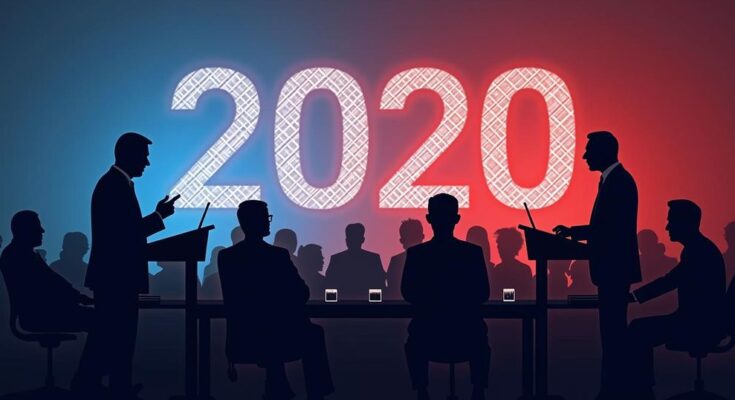This article explores the significance of vice presidential debates, highlighting five memorable moments that illustrate the drama, tension, and occasional humor characteristic of these political events. The analysis covers notable exchanges from past debates, showcasing how these moments have shaped public memory of the electoral process.
Vice presidential debates often hold little significance in the grand scheme of electoral politics, yet they have produced some memorable moments throughout history. The upcoming debate between Tim Walz and J.D. Vance is expected to seek a breakout moment, illustrating the tradition established since the first debate in 1976 between Walter Mondale and Bob Dole. This article highlights five of the most notable moments from past vice presidential debates, each showcasing the unique dynamics and occasionally heated exchanges that have characterized these interactions. The fifth memorable moment occurred in 2020, where a fly perched itself on Mike Pence’s head, overshadowing the debate itself. This incident became emblematic of the unusual atmosphere during the Covid pandemic. The fourth notable instance was the exchanges during the inaugural debate in 1976, where Dole’s aggressive tone drew a sharp rebuttal from Mondale, who characterized Dole as a “hatchet man.” Sarah Palin’s debate in 2008 ranked third, as she endeavored to appear relatable by referring to her opponent, Joe Biden, informally. The encounter resonated due to her efforts to connect with the audience despite earlier criticisms. The second most famous moment took place in 1988 when Dan Quayle’s age was a topic of scrutiny, leading to Lloyd Bentsen’s iconic retort, “Senator, you’re no Jack Kennedy,” which left an indelible mark on the debate landscape. Lastly, the most memorable moment, stemming from the 1992 election, captured James Stockdale’s memorable introduction: “Who am I? Why am I here?” This instance underscored the challenges faced by political figures with lesser public recognition. Overall, these moments encapsulate the unexpected drama and societal reflections that vice presidential debates can convey.
The tradition of vice presidential debates began in 1976, and they have since evolved into events that, while often overlooked, can create lasting impressions in American political discourse. These debates provide a platform for candidates to convey their messages, engage in confrontations, and showcase their abilities under pressure. Historical references highlight how these debates have often become more than just discussions of policies, becoming cultural events that resonate with the electorate.
In summary, vice presidential debates, though frequently deemed inconsequential, have a history of generating memorable moments that reflect the political climate and personality dynamics of the time. From humorous encounters to pointed criticisms, these instances reveal the often unpredictable nature of such debates and their capacity to influence public perception and electoral outcomes.
Original Source: www.politico.com




